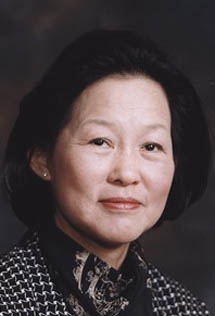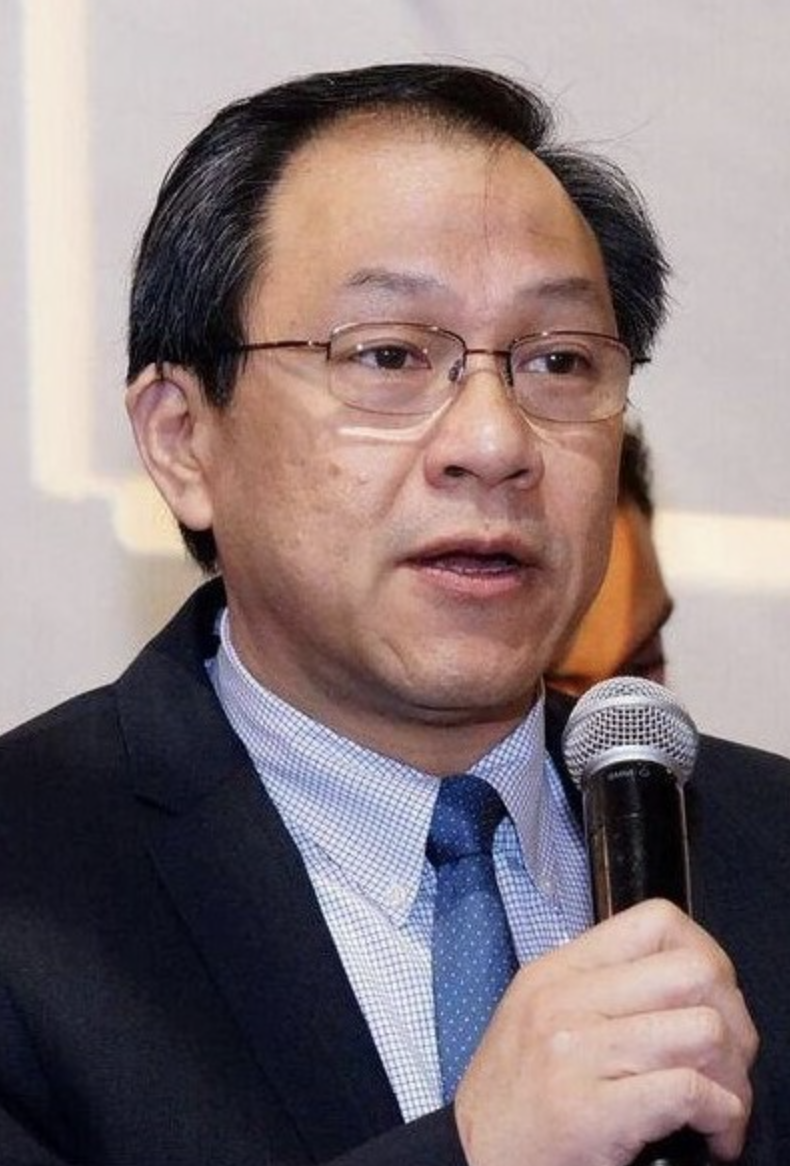
| Recent Board Meeting Minutes Click here to access them. |
| Mission Statement 80-20 Educational Foundation is a 501(C)(3) tax-exempt organization. It is devoted to furthering equal opportunity in the workplace and equal justice for Asian Americans. It has the same goals as 80-20 PAC, Inc. with an overlapping Board. However, these organizations use different approaches. 80-20 Educational Foundation focuses on political education, it does not take political action such as endorsement of political candidates. The two organizations, while sharing the same goal, are operated independently. All donations to this Foundation are tax deductible. |
| Board of Directors President – S B Woo
S B was elected Lt. Governor of Delaware in 1985, the highest elected state office in the continental USA held by an Asian American at the time. He later was an Institute Fellow at the Kennedy School of Government at Harvard University. He is listed in Who’s Who in America and a life-size picture of him is on display in the Smithsonian National Museum of American History in Washington, D C. S B was the national president of the Organization of Chinese Americans
(OCA) in 1991. He is a founding member and the Immediate Past President
of 80-20 Initiative.
Board Treasurer – Dr. Wei-Jing Zhu (N. California)
Wei-Jing has been actively involved in builiding community at local Chinese schools, Asian American churches, and company Asian American networks. He is an 80-20 Family Life Member and supporter since 2000.
Board Secretary – Jing-Li Yu (New York)
Professionally, Jing has been a lawyer since 2010. In the first half of his legal career, he primarily represented companies defending against government investigations. In the second half of his legal career, he has primarily represented investors in lawsuits against company board directors and officers for breach of fiduciary duty. Jing has been a resident of Queens, New York, since he was 9 years old. For most of his life, he has lived among New York City's largest Chinese and Korean American communities. He went to Hunter College High School in Manhattan. He graduated from the University of Pennsylvania in two years with a B.A. in economics. He also has an M.A. in Social Sciences from the University of Chicago, and a J.D. from the University of Chicago Law School. Board Member – Dr. Alice S. Huang (S. California)
Dr. Huang attended Wellesley College and Johns Hopkins University where she received a Ph.D. in Microbiology. After further training at the Salk Institute and M.I.T. she joined the faculty at Harvard Medical School where she received tenure. She directed the Infectious Disease Unit at the Boston Children’s Hospital and subsequently became the Dean for Science at NYU. She has advised Minister K.T. Li in the establishment of the Science Council in Taiwan and was a founding advisor for the Institute for Molecular Cell Biology in Singapore. She is a past President of the American Association for the Advancement of Science (AAAS) as well as the American Society for Microbiology. Dr. Huang first supported 80-20 in its early years and joined the Board in 2007. She is currently Senior Faculty Associate at the California Institute of Technology. Board Member – Yueh-Ting Lee
Yueh-Ting (Y-T) Lee received his Ph.D. in social psychology from State University of New York (SUNY) at Stony Brook (or Stony Brook University) and also completed his postdoctoral training and research at the University of Pennsylvania. Currently he is a Professor of Psychology at Southern Illinois University (SIU) at Carbondale where he also served as the Dean of the Graduate School (2015-2019). Before he came to SIU, Dr. Lee had served as an administrator in various capacities, including Dean of the College of Arts and Sciences both at Minot State University in North Dakota and at the University of Toledo, Ohio. Dr. Y-T Lee has been strongly supportive of the 80-20 mission and its initiatives since 2000. In 2008-2012, he was actively engaged in Asian American communities via several grassroots initiatives in the Midwest areas (e.g., in NW Ohio, SW Ohio, NE Ohio, and SE Michigan) to strengthen 80-20 PAC. He had served on the 80-20 PAC Board for six years (2009-2015). Since December 2020, he has been serving on the Board of the 80-20 National Asian American Educational Foundation. Board Member – David Lee
David Lee is a 4th generation Asian American best known for his education advocacy for the Specialized High School Admission Test (SHSAT) in New York City. He is presently Chair of the League of Asian Americans of New York, which seeks greater representation of AAPI in government affairs and serves as the Commander of the Sons of the American Legion in New York’s Chinatown. He has encouraged thousands to be civically active and founded many community organizations including the New York Chapter of the Chinese American Citizens Alliance which helped with the passage of the Congressional Gold Medal for Chinese American WW2 Veterans. He is a co-chair of NYC mayor elect Eric Adams transition team. Professionally, David was Assistant to the Chair and CEO of Allied Stores, the predecessor of Macy’s and is presently an asset manager. David is a graduate of the NYU Stern School of Business and received an MBA in finance from St John’s University. Special Assistant to the President – Yiang Chen
Yiang holds an M.A. from NYU Grossman School of Medicine and is committed to advancing equal opportunities for Asian Americans. With a passion for social justice, Yiang is dedicated to supporting the mission of 80-20 Educational Foundation in promoting workplace equality and equal justice for the Asian American community. Assistant to the President – Shenggao Wang
Shenggao Wang received his Ph.D. in foreign language education from the University of South Florida. Currently he is an Associate Teaching Professor of Chinese at Florida International University. He has been teaching Chinese language, culture and history for over 10 years. As a first generation immigrant from China, he shares the vision of 80-20 EF which is devoted to furthering equal opportunity in the workplace and equal justice for Asian Americans. |
| Bylaws latest version, amended 202404091. NAME AND OFFICES OF THE CORPORATION
2. PURPOSES AND LIMIATIONS The purposes of the Corporation are charitable and dedicated to the education of Asian Pacific Americans (APA) in the area of public affairs and participation in the democratic process of the nation and to win equal justice and equal opportunity. The 80-20 Ed Foundation shall sponsor and provide financial support for programs and activities that develop APA leadership in the public sector, raise public awareness of Asian Pacific concerns and their impact on policy and decision-making in government, to eliminate prejudice and discrimination. Activities include but not limited to:
3. MEMBERSHIP The Corporation shall have no members. Any action, which would otherwise require approval by a majority of all members or approval by the members, shall require only approval of the Board. All rights, which would otherwise vest in the members, shall vest in the directors. 4. BOARD OF DIRECTORS
5. OFFICERS 5.1 Officers of the Corporation. The officers of the 80-20 Educational Foundation shall be composed of a President, a Vice President, a Secretary and a Treasurer. The term of officers is two years. 5.2 Election of Officers. Officers shall be elected by the Board at its annual meeting.. 5.3 Removal of Officers. Any officer of the 80-20 Educational Foundation may be removed from office by a two-third (2/3) vote of the Board of Directors. 5.4 Resignation of Officers. Any officer may resign at any time by giving written notice to the 80-20 Ed Foundation. The resignation shall take effect as of the date the notice is received or at any later time specified in the notice and, unless otherwise specified in the notice, the resignation need not be accepted to be effective. Any resignation shall be without prejudice to the rights, if any, of the 80-20 Ed Foundation under any contract to which the officer is a party. 5.5 Responsibilities of Officers.
6. PROHIBITION ON USING PRINCIPAL For the operational expenses of EF only the president, with the approval of a majority of the Board, may withdraw up to 4% of the assets of the LP Financial account, per year. The total annual deficit of 80-20 Educational Foundation shall not exceed 4% of the principal held by LPL Financial. If the deficit exceeds 4% by December 31 of the year, the President shall be deemed to have automatically resigned, unless the Board grants an exception. 7. OVERSIGHT OF ASSET 7.1:To ensure proper oversight of 80-20 Ed Foundation's assets, all such assets shall be held in account(s) where 80-20 Educational Foundation (delete: the president of 80-20) shall be designated the “owner”, the President of 80-20 shall be given day-to-day control of the account(s), the Treasurer shall perform his duties as specified in 5.5 d, and another Board director shall serve as the “monitor. The "monitor" shall have full visibility into every transaction into and out of 80-20 Ed Foundation's account(s) that hold all of 80-20 Ed Foundation's assets. All decisions concerning any transaction of above $500 of 80-20 Ed Foundation's asset(s) must be approved by two of the three above. The "monitor" shall be elected by a majority vote of the Board. 7.2: Any planned transfer of assets out of the above-referenced account(s) of at least $25,000 shall be reported to the Board at least 5 business days before such transaction is made. During these 5 business days, a majority of the Board may vote to prohibit the transaction, and the Board decision shall be binding. 8. MISCELLANEOUS PROVISIONS 8.1 Parliamentary Authority. Proceedings of 80-20 Ed. Foundation shall be governed by the current edition of Robert’s Rules of Order Revised. 8.2 Fiscal Year. The fiscal year of 80-20 Ed. Foundation shall be from January 1st to December 31st. 8.3 Financial decisions. Expenditures and investments shall be made jointly by the Officers of the Corporation. 8.4 Checks, Drafts, Notes. Checks, drafts and notes in excess of $25,000.00, issued by 80-20 Ed Foundation, shall be signed by the Treasurer and the President. 9. INDEMNIFICATION If a Director, officer, employees or agent of the organization, or any testate or in testate successor thereof, is made, or threatened to be made, a party to any civil or criminal action of proceeding in any matter arising from his or her status in the organization or from the performance of his or her duties for or on behalf of the organization, then, to the fullest extent now or hereafter permitted by law, upon affirmative vote of the Board of Directors, a quorum of directors being present at the time of the vote who are not parties to the action or proceeding, the organization shall:
9. DISSOLUTION Upon the dissolution of the Corporation, the Board of Directors of the Corporation shall, after paying or making provision for the payment of all of the debts, claims and liabilities of the Corporation, dispose of all of the assets of the Corporation exclusively for the purposes of the Corporation in such manner, or to such organization or organizations organized and operated exclusively for charitable, scientific or educational purposes as shall at the time qualify as an exempt organization or organizations under Section 501(c)(3) of the code, as the Board of Directors of the Corporation shall determine. 10. AMENDMENTS New Bylaws may be adopted, or these Bylaws may be amended or repealed, by a 2/3 vote of approval by the Board. Adopted June 22, 2018 Amended April 9, 2024 |
 S B
received his Ph D in physics from Washington University in St. Louis
in 1964. He was a Professor of Physics and a trustee of the University
of Delaware. He was the founding president and chief negotiator of the
Faculty Bargaining Unit at that University.
S B
received his Ph D in physics from Washington University in St. Louis
in 1964. He was a Professor of Physics and a trustee of the University
of Delaware. He was the founding president and chief negotiator of the
Faculty Bargaining Unit at that University.  A first place winner of the 1986 Westinghouse (later Intel and now Regeneron) Science Talent Search, Wei-Jing received his A.B. from Harvard College and Ph.D. in theoretical physics from Cornell University. While at IBM Research, he co-authored the seminal BLEU metric for automatic evaluation of Statistical Machine Translation systems. He has been a quantitative researcher in finance for more than 10 years, including being the Vice President of Quantitative Core Team at Two Sigma Investments. Currently he is the CEO and Co-Founder of Cherith Analytics.
A first place winner of the 1986 Westinghouse (later Intel and now Regeneron) Science Talent Search, Wei-Jing received his A.B. from Harvard College and Ph.D. in theoretical physics from Cornell University. While at IBM Research, he co-authored the seminal BLEU metric for automatic evaluation of Statistical Machine Translation systems. He has been a quantitative researcher in finance for more than 10 years, including being the Vice President of Quantitative Core Team at Two Sigma Investments. Currently he is the CEO and Co-Founder of Cherith Analytics.
 Jing-Li Yu is a long-time Board member and former employee of 80-20. Between 2002-2006, Jing was the Special Assistant to the President, and then the Operations Director, for the 80-20 Initiative. From 2006 to the present, Jing has served as a volunteer director and officer of the 80-20 Boards. He is currently the Secretary of the 80-20 Educational Foundation and the Treasurer of the 80-20 AAEPAC.
Jing-Li Yu is a long-time Board member and former employee of 80-20. Between 2002-2006, Jing was the Special Assistant to the President, and then the Operations Director, for the 80-20 Initiative. From 2006 to the present, Jing has served as a volunteer director and officer of the 80-20 Boards. He is currently the Secretary of the 80-20 Educational Foundation and the Treasurer of the 80-20 AAEPAC.


